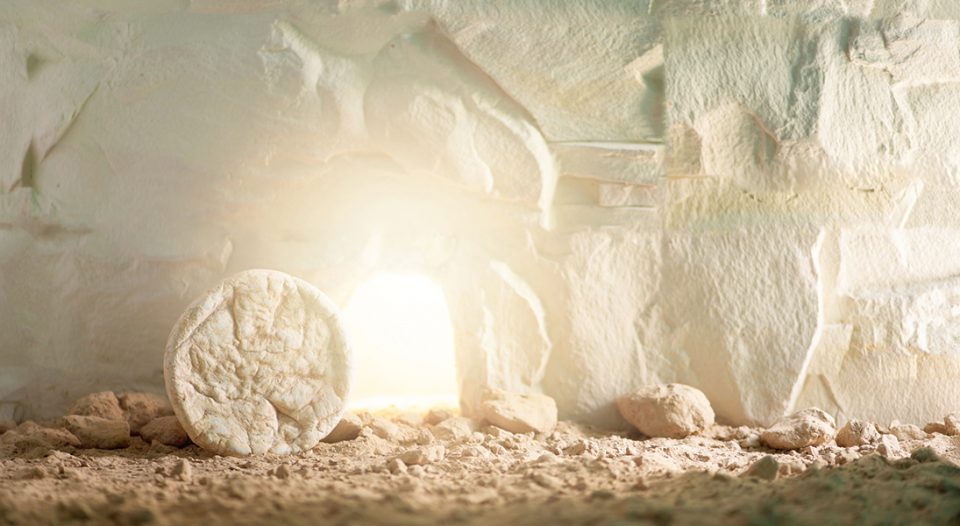Lectionary for April 17, 2022
Easter Sunday
Acts 10:34-43; Psalm 118:1-2, 14-24;
1 Corinthians 15:19-26; Luke 24:1-12
It’s been a tough year since last Easter, right? After two years of trying to do everything right, COVID-19 struck my family hard. And now we hear of wars and rumors of wars every time we look at media. Our divides in this country and around the world also seem to grow more intense every day. Frankly, I’m tired of all the bad news. But on this day, more than any other of the year, we are confronted with good news—the Good News—that comes to unsettle and, indeed, overturn all the bad news. This week’s Gospel reading gives us a stirring example of good news for folks who have had far too much bad news.
Very early on a Sunday morning in springtime, at least five women—Mary Magdalene, Joanna, Mary the mother of James and others (Luke 24:10)—got up to confront the ultimate bad news: Their rabbi had been tortured to death by the Romans.
In Jerusalem and far away from their homes and families in the Galilee, the women didn’t have a place of their own to bury Jesus. The cruel Romans weren’t about to return his body to his followers anyway. But a member of the Sanhedrin, one of those who had not agreed to collaborate with the Romans, asked for Jesus’ body (Luke 23:50-53). Pilate, presumably thinking that Joseph of Arimathea was Jesus’ enemy, allowed him to take the crucified body. Apparently, Joseph hadn’t coordinated with Jesus’ Galilean followers or even spoken to them. The women, who watched as Joseph took Jesus’ body down from the cross and buried him in a new tomb, didn’t even have a chance to say goodbye. This was all very bad news.
So early in the morning the women came to do what they didn’t get to do—say goodbye to their master. Because Jesus was killed on a Friday, they waited until after the Sabbath, to the first day of the week, to open the tomb and treat Jesus’ body. What they expected to find wasn’t going to be pretty. What they did find was confusing—and perhaps troubling. Jesus’ tomb was open, and his body wasn’t there. Instead, they found two men in dazzling clothes who announced that Jesus was no longer dead but had been raised!
What they expected to find wasn’t going to be pretty. What they did find was confusing—and perhaps troubling. Jesus’ tomb was open, and his body wasn’t there.
The men, presumably angels, reminded the women of all the words that Jesus had spoken to them as they studied and journeyed with him as disciples and supporters. Jesus had already told them—these women—that he would be handed over to sinful men, be killed and then be raised to life! The women remembered this good news and went to tell the 11 disciples and the other followers.
We have sort of a coda to the story, a little bit more bad news before the Good News becomes known to all. The disciples didn’t believe or listen to the women (Luke 24:11). Sadly, this is still the case in far too many churches and denominations. I think the women who had traveled, not just with Jesus but also with the disciples for those years, probably knew how they were going to be received. But they told all who would listen—and several who wouldn’t—what they knew about Jesus based on their experience that morning and their years of listening to his words. The good news is that, as Jesus appeared to more and more people, the testimony that initially was rejected because it came from the “wrong” people was eventually confirmed. Jesus is alive!
There is a lot of bad news in our world today. And far too often the folks who have good news about the kingdom of God are ignored or disbelieved. But the thing about truth, about the Good News, is that it will win. The truth will come out. Jesus is alive. He has bought, with his own body, victory over sin and death, and has freed humanity and the entire universe from bondage. Jesus has great news for people with far too much bad news: Jesus won. Jesus is alive. Alleluia!





